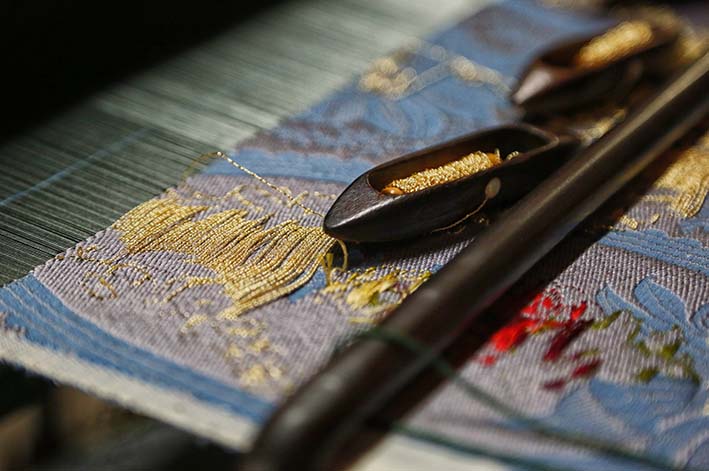
A project led by the Universitat de València has been selected, within the framework of the Horizon2020 Program, with the aim of promoting the conservation, dissemination and better understanding of European heritage from the 16th to 19th centuries. The initiative is coordinated by the Institute of Robotics and Information and Communication Technologies (IRTIC) and by the Faculty of Geography and History, both of the Universitat de València. The academic institution thus forms part of a consortium of 9 partners to study European silk routes. The project is funded by the European Union.
Titled 'SILKNOW, Silk Heritage in the Knowledge Society: from punched cards to big data, deep learning and visual / tangible simulations', will be based on data obtained from digital catalogs of museums throughout Europe. A computer intelligence system will allow users to access information related to silk, through visual and tangible simulations. Likewise, a multilingual thesaurus and a virtual loom will be developed that will allow museums, creative industries and citizens to benefit from state-of-the-art technologies for the enjoyment and appreciation of this heritage.
The project will last 36 months, from 2018 to 2020. It consists of 9 partners from 6 countries (Germany, Slovenia, Spain, France, Italy and Poland), including creative industries, SMEs, universities, research centers and museums. It also has collaborating institutions as diverse as the World Tourism Organization, the Victoria and Albert Museum (United Kingdom), National Heritage (Spain), Center des Monuments Nationaux (France) and The Getty Research Institute (USA).
SILKNOW is born from the importance of the silk heritage for Europe as a means of exchange of ideas and economic development. In the words of Professor Ester Alba, from the Department of Art History of the Universitat de València, "initiatives like this one are fundamental to protect an endangered heritage that has been vital for international relations, as well as for innovation and technical development. In addition, in the Valencian society, it is a living heritage, because it remains in use thanks to the traditional Valencian clothing, among other functions ".
For Professor Marcos Fernández, from the IRTIC of the Universitat de València, "Jacquard looms, as binary systems, are the direct antecedent of computer programming. This type of synergies between history and state-of-the-art technologies - such as 3D printing or artificial intelligence - are an essential part of our work in the ARTEC group. "
In this way, SILKNOW coincides with the guidelines of Horizonte2020, which aims to promote research, innovation and social development through the participation of consortiums formed by research groups, companies and users to generate science of great excellence, improve European competitiveness and investigate the big issues that affect citizenship.
















